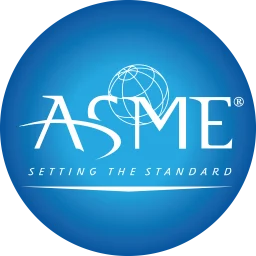
===
The American Society of Mechanical Engineers (ASME) is a renowned professional organization that has been at the forefront of advancing mechanical engineering knowledge for over a century. With a rich history and a strong commitment to promoting innovation and collaboration, ASME plays a vital role in shaping the field of mechanical engineering. This article provides a comprehensive overview of ASME, highlighting its historical significance, its contributions to advancing mechanical engineering knowledge, its efforts in promoting innovation and collaboration, and its influence on standards and codes in the field.
The American Society of Mechanical Engineers: A Historical Overview
Established in 1880, the American Society of Mechanical Engineers has a long and illustrious history. It was founded with the aim of promoting the art, science, and practice of mechanical engineering. Over the years, ASME has grown into a global organization with thousands of members from various industries and academic institutions.
ASME has played a significant role in shaping the field of mechanical engineering through its initiatives, conferences, and publications. It has been instrumental in fostering collaboration among engineers and encouraging the exchange of ideas and knowledge. The society has also been a driving force behind the development of standards and codes that ensure safety, quality, and efficiency in mechanical engineering practices.
ASME’s Role in Advancing Mechanical Engineering Knowledge
ASME is committed to advancing the knowledge and skills of mechanical engineers through various educational programs, conferences, and publications. The society organizes conferences and events where engineers can present their research findings, share best practices, and learn from industry experts. ASME’s prestigious journals, such as the Journal of Mechanical Design and the Journal of Heat Transfer, provide a platform for researchers to publish their work and contribute to the advancement of mechanical engineering knowledge.
Additionally, ASME offers a range of professional development resources, including online courses, certifications, and technical publications. These resources help engineers stay updated with the latest developments in their field and enhance their expertise. By providing these opportunities, ASME plays a crucial role in fostering continuous learning and professional growth among mechanical engineers.
Promoting Innovation and Collaboration within ASME
ASME recognizes the importance of innovation in driving progress in mechanical engineering. The society actively promotes innovation by organizing innovation showcases, competitions, and awards. These initiatives encourage engineers to think creatively, develop new technologies, and push the boundaries of mechanical engineering.
Furthermore, ASME fosters collaboration among its members through technical divisions, committees, and local sections. These platforms provide opportunities for engineers to connect, share ideas, and collaborate on projects. ASME’s emphasis on collaboration not only enhances the exchange of knowledge but also promotes interdisciplinary approaches to problem-solving, leading to innovative solutions in mechanical engineering.
ASME’s Influence on Standards and Codes in Mechanical Engineering
ASME has had a significant impact on the development of standards and codes in mechanical engineering. The society establishes and maintains codes and standards that ensure the safety, reliability, and efficiency of mechanical systems. ASME codes, such as the Boiler and Pressure Vessel Code and the B31 series for piping systems, are widely recognized and adopted by industries worldwide.
ASME’s involvement in standards development goes beyond mechanical systems. The society actively participates in the development of standards related to materials, energy, and environmental sustainability. By setting these standards, ASME contributes to the advancement of mechanical engineering practices and helps industries meet regulatory requirements.
===
The American Society of Mechanical Engineers has played a pivotal role in advancing mechanical engineering knowledge, promoting innovation and collaboration, and influencing standards and codes in the field. Through its rich history, educational programs, conferences, and publications, ASME continues to be a driving force in shaping the future of mechanical engineering. As the society looks ahead, it remains committed to empowering mechanical engineers and addressing the evolving challenges and opportunities in the field.
